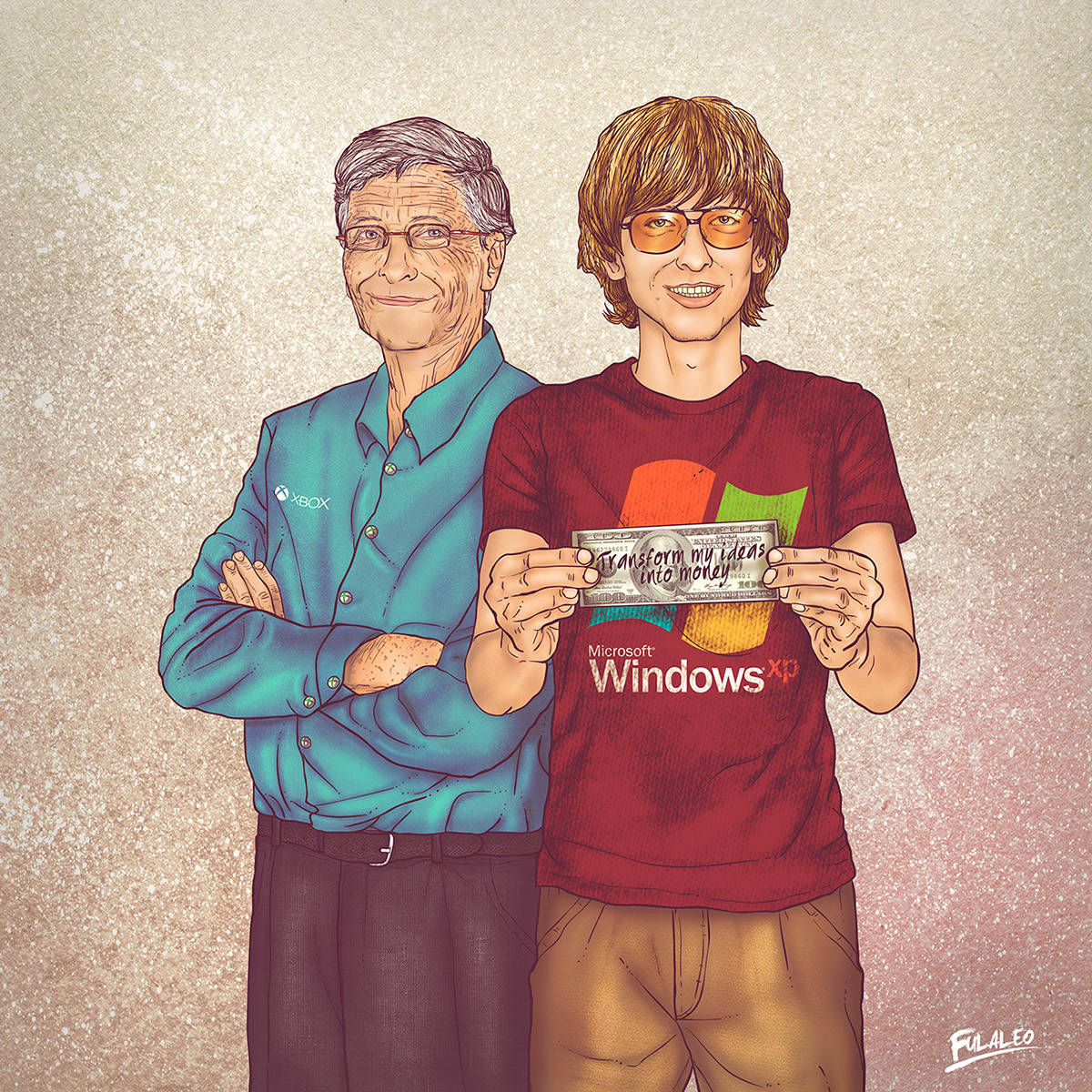 January 13, 2000: Steve Jobs’ longtime frenemy Bill Gates quits as Microsoft CEO. He steps down from the leadership role just a month after his company’s stock hit its all-time high.
January 13, 2000: Steve Jobs’ longtime frenemy Bill Gates quits as Microsoft CEO. He steps down from the leadership role just a month after his company’s stock hit its all-time high.
The news coincides with a turning point in the long-running battle between the two tech powerhouses. Microsoft begins a long decline from its previous dominance, while Apple continues its rise to the top.
Bill Gates and Steve Jobs: Parallel careers
For good reason, we focus on Apple events for our daily “Today in Apple history” feature. With that said, Bill Gates stepping down as Microsoft CEO in 2000 proved an important occasion for the entire computer industry.
Born in 1955, the same year as Apple co-founder Jobs, Gates achieved his first major success developing software for the original Macintosh. Apple viewed Microsoft’s programs as crucial to the Mac’s success. So crucial, in fact, that after Jobs was pushed out of Cupertino in 1985, then-Apple CEO John Sculley signed a deal with Gates to give Microsoft “non-exclusive, worldwide, royalty-free, perpetual, nontransferable license to use [parts of the Mac technology] in present and future software programs” for the fledgling Windows operating system.
In return, Microsoft pledged to continue developing Word for Mac. The company also agreed to delay porting Excel to Windows for one year.
It was a horrendously lopsided deal, as it turned out. And when Microsoft finally got its act together and started making Windows faintly competitive with Mac OS, the agreement triggered a long-running lawsuit over whether Microsoft stole the Mac’s “look and feel” to create Windows.
Microsoft came out on top. Throughout the 1990s, the company’s strategy of licensing its technology to third-party manufacturers rather than producing hardware made Microsoft an almost unassailable tech giant. When Apple eventually gave in and tried the same strategy, it backfired — leading to the disastrous “clone Mac” era.
Microsoft and Apple: Great rivals
Bill Gates and Steve Jobs often found themselves positioned as enemies. However, they were more like rivals. Both got in on the ground floor of the PC industry. And both men received media coverage in a way that a lot of tech execs don’t today. These days, products tend to speak for themselves.
Both Jobs and Gates saw plenty of ups and downs during the decade before Gates handed over the reins of Microsoft to Steve Ballmer on this day in 2000. For evidence, check out Jobs and Gates’ first joint interview, published in a 1991 issue of Fortune magazine. Just nine years before Gates quit as Microsoft CEO, he was riding high. Meanwhile, Jobs was the man running two failing companies: NeXT and Pixar Animation Studios.
Bill Gates quits as Microsoft CEO, becomes ‘chief software architect’
When Gates stepped down as CEO in 2000, he said he would stay on as Microsoft’s “chief software architect.” He gave up day-to-day responsibilities in Redmond in June 2008 to work on his charitable ventures.
One possible reason behind Gates’ decision to leave his job as CEO: Microsoft faced increased antitrust scrutiny, which undoubtedly made the job less fun than before.
Jobs, by comparison, stayed as CEO at Apple until just a few short months before his death in 2011.
Were you an Apple or a Windows user (or neither) in January 2000? Leave your comments below.


